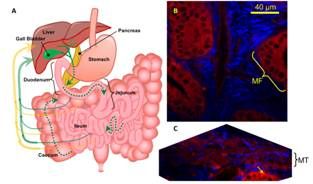UC Davis study confirms link between advanced maternal age and autism
Advanced paternal age is a risk only when the mother is younger
Advanced maternal age is linked to a significantly elevated risk of having a child with autism, regardless of the father's age, according to an exhaustive study of all births in California during the 1990s by UC Davis Health System researchers. Advanced paternal age is associated with elevated autism risk only when the father is older and the mother is under 30, the study found.
Published in Autism Research, the study, "Independent and Dependent Contributions of Advanced Maternal and Paternal Ages to Autism Risk," is one of the largest population-based studies to quantify how each parent's age — separately and together — affects the risk of having a child with autism.
The study found that the incremental risk of having a child with autism increased by 18 percent — nearly one fifth — for every five-year increase in the mother's age. A 40-year-old woman's risk of having a child later diagnosed with autism was 50 percent greater than that of a woman between 25 and 29 years old.
Advanced parental age is a known risk factor for having a child with autism. However, previous research has shown contradictory results regarding whether it is the mother, the father or both who contribute most to the increased risk of autism. For example, one study reported that fathers over 40 were six times more likely than fathers under 30 to have a child with autism.
"This study challenges a current theory in autism epidemiology that identifies the father's age as a key factor in increasing the risk of having a child with autism," said Janie Shelton, the study's lead author and a doctoral student in the UC Davis Department of Public Health Sciences. "It shows that while maternal age consistently increases the risk of autism, the father's age only contributes an increased risk when the father is older and the mother is under 30 years old. Among mothers over 30, increases in the father's age do not appear to further increase the risk of autism."
Most read news
Other news from the department science

Get the life science industry in your inbox
By submitting this form you agree that LUMITOS AG will send you the newsletter(s) selected above by email. Your data will not be passed on to third parties. Your data will be stored and processed in accordance with our data protection regulations. LUMITOS may contact you by email for the purpose of advertising or market and opinion surveys. You can revoke your consent at any time without giving reasons to LUMITOS AG, Ernst-Augustin-Str. 2, 12489 Berlin, Germany or by e-mail at revoke@lumitos.com with effect for the future. In addition, each email contains a link to unsubscribe from the corresponding newsletter.






















































